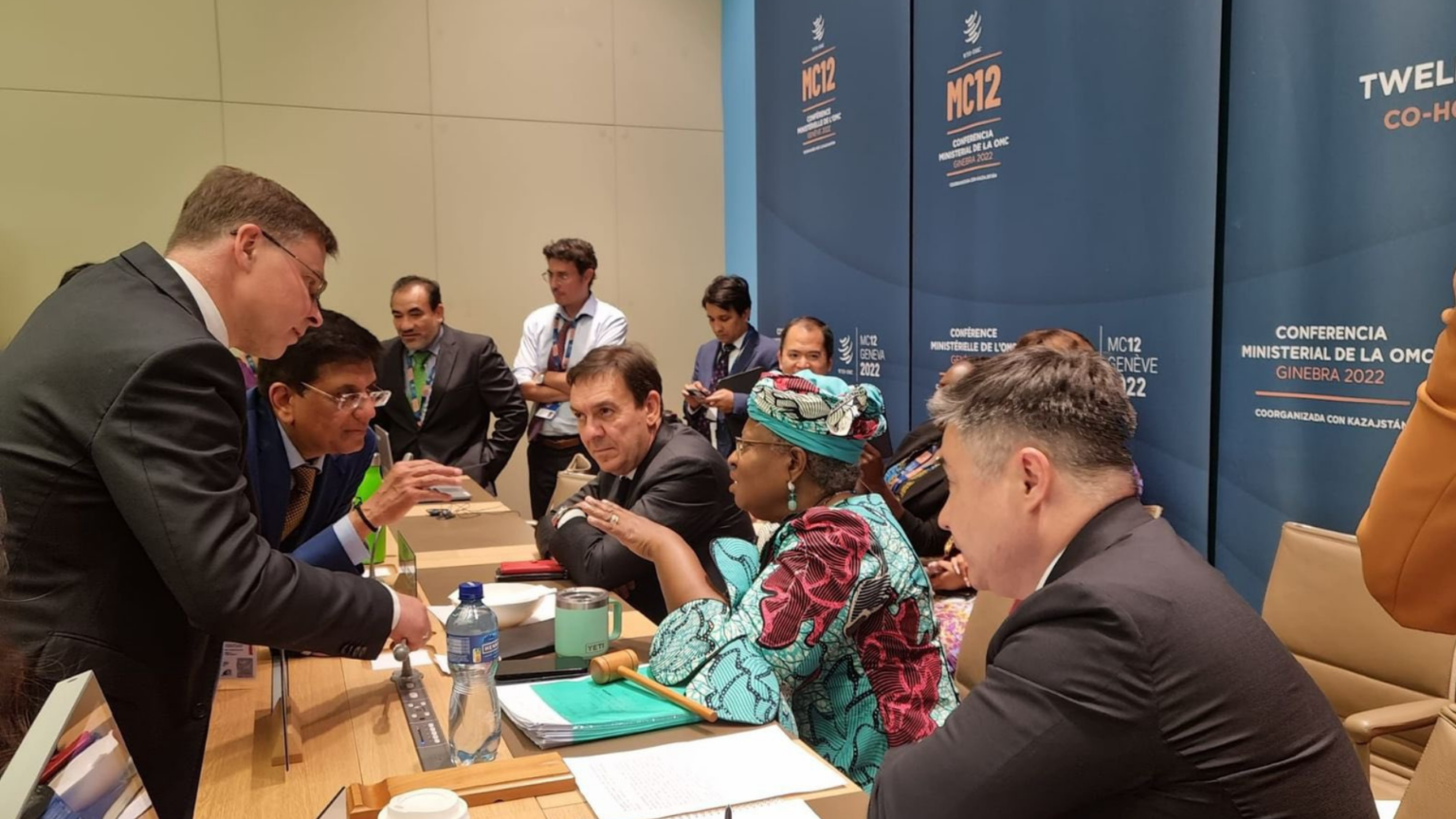The 12th Ministerial Conference concluded with a positive outcome on 17 June in Geneva.
The Ministerial level discussion made the ‘Geneva Package’ include fisheries subsidy, waiver of certain requirements related to compulsory licensing for COVID-19 vaccines, food safety, and agriculture, and WTO reform.
It is the first time since 2015 that an outcome document has been made.
WTO Director-General Ngozi Okonjo-Iweala said on outcomes of the Conference that “the package of agreements you have reached will make a difference to the lives of people around the world.
The outcomes demonstrate that the WTO is, in fact, capable of responding to the emergencies of our time.”
In this produced “Geneva Package,” India was severely concerned with the fisheries subsidy agreement as India accounts for 90 lakh fishermen.
Positive outcomes for India
India was demanding to remove the clause of the de-minimis level of 0.8 percent of the annual global volume of marine capture production, which was barring the member state from giving subsidies to fishermen over 0.8 percent.
India was demanding to remove the clause of the de-minimis level of 0.8 percent of the annual global volume of marine capture production, which was barring the member’s state from giving subsidies to fishermen over 0.8 percent, but the outcome document has not included any such measures.
India argued that how the de-minimis level of 0.8 percent same for all sets of people as some African countries have 220 million population and a comparatively large number of fishermen while the countries only have 2-3 million population and some thousands of fisherman.
India was concerned with unregulated, unreported, and illegal fishing. Therefore, the Agreement has provisions related to prohibiting the subsidy of such vessel or operator and sanctioning those, who have been involved in Illegal, Unregulated, and Un-reported (IUU).
India’s another win on the matter of subsidies for overfishing in the Exclusive Economic Zone (EEZ).
In the outcome document, the developing and the least developing countries can provide subsidies for overfishing in their Exclusive Economic Zone(EEZ) for 2 years. Which were 12 nautical miles in the proposed draft.
India’s other advance in this outcome document is Article 5.1 of the Agreement on Fisheries Subsidy which states that “no Member shall grant or maintain subsidies provided to fishing or fishing related activities outside of the jurisdiction of a coastal Member or a coastal non-member and outside the competence of a relevant RFMO/A.”
This means now the Indian government can provide subsidies to its fishermen fishing in the EEZ and Regional Fisheries Management Organization (RFMO) area.













